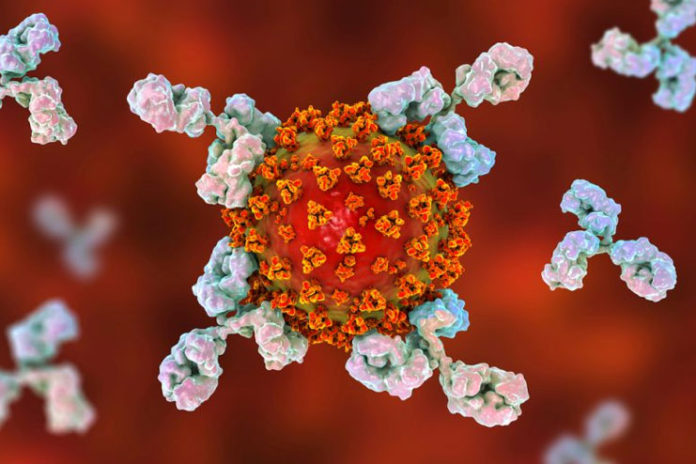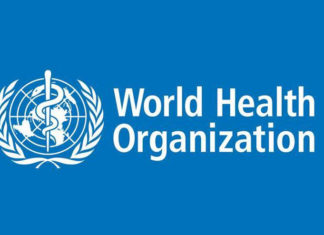Apart from the discussions surrounding the Covid-19 vaccines, the one factors that everyone has been skeptical about are the antibodies. The constant talks surrounding antibodies, herd immunity and the coronavirus vaccines has taken over the realm of discussion to next level.
What are antibodies?
Antibodies are the response generated to alert the immune system about an incoming threat to the body. Everyone has special immune cells in the body called the Immunoglobulin M which is responsible for the development of these antibodies.
This is the first line of attack by the immune system when Covid-19 attacks your body. They directly bind onto the coronavirus and then make them attacked by the white cells of the body.
The IgMs are predominantly produced in the body within a few days of the infection and can be detected in a lab test in a matter of week. The impacts of these molecules last for a few months and sometimes even years. In the case of Covid-19, it is still not clear how long the impact lasts.
Another form of immunoglobulins is the IgG which are more fine tuned to pick up the virus. These are also viably present in the blood stream for a longer period of time than the IgM. The exact duration of its presence is still unclear.
When the body recognises the foreign particles like the virus, it has the capability of developing these antibodies at a very faster rate. Even when you are severely infected, only slight impacts are shown in the body because of the antibodies.
But, 10% of people globally don’t have the capability of developing these antibodies, which put them at risk of developing such conditions and these infections being fatal for them in the long run.
Are high levels of antibodies an advantage for the body?
This is a myth that most people believe in. But, no, it is not necessary that high levels of antibodies in the body showcase a higher rate of protection.
The reason for this is because even when your body produced and has a lot of antibodies in it, it is likely going to be used up soon as the days pass. It is likely that by the end of the year the antibodies that your body produced in response to Covid-19 might have been used up as well.
This means that for the most people, the body will have to restart generating those antibodies again for Covid-19. What could be helpful in this case is if you have high levels of the antibodies and you contract the virus again, the antibodies will likely counterfeit the impacts of the virus.
But, in case your body has a low level of antibodies or no amount as such, the same will end up impacting your health just as badly the second time that you get infected with the virus.
Can you beat Covid-19 but not have antibodies?
This is a very common question that people have.
Take common cold or flu for example. People suffer from common cold all the time but if you test their blood for any traces of antibodies against them, it is likely that you won’t find any.
The same is the case for Covid-19. Often, the virus that infects the body is of the milder variant which gets cured easily and doesn’t require any kind of intervention from the antibodies, hence the antibodies aren’t present.
Even the experts believe that it is possible that over time, the new coronavirus will mutate to a point that it won’t need the production of the antibodies for the cure in the long run.
Why are people testing for antibodies for Covid-19?
When asked, the experts themselves aren’t sure as to why the same is happening. Knowing whether or not you have antibodies against Covid-19 doesn’t help in the long run, especially because of the fact that the immunity with these antibodies don’t last forever.
The world also doesn’t have a standard antibody test yet, so nothing is set in stone at the moment.
Does the antibody testing for Covid-19 insinuate that herd immunity would work?
Another common question that people have is this. Doctors have time and time clarified that it is not possible to acquire a herd immunity outside of a vaccination programme.
Since the antibodies don’t last long and there are possibilities of reinfection, the herd immunity would never develop naturally unless majority of the population contract this virus and then recover from it. This is the only possible way it could have a lasting immune response on the body.
Does having antibodies mean you don’t need a vaccine?
No. Even if you have antibodies, vaccines are mandatory, especially for something as infectious as Covid-19. The presence of antibodies don’t guarantee that you won’t fall ill which means that the only way to fight this is by alerting your body ahead of time which is what the vaccine helps with.
Studies have been ongoing whether the transfusion of the antibody rich plasma could be of any help for the treatment in the long run. In some Covid-19 patients in India, the plasma therapy has helped quicken the recovery process.
But, blind reliance on this is also not suggested.
Have you heard of the Roche test?
Now that we have been consistently talking about Covid-19 and antibodies, the next thing that you need to talk about is the Roche test which is a high accuracy test that has been independently evaluated in the UK.
Using this test, the blood work can be done within 18 minutes.
Further studies and relevance need to be established when talking about antibodies and Covid-19. It is extremely important to ensure that you do keep an eye out on the same and keep yourself updated with the progress around.












































